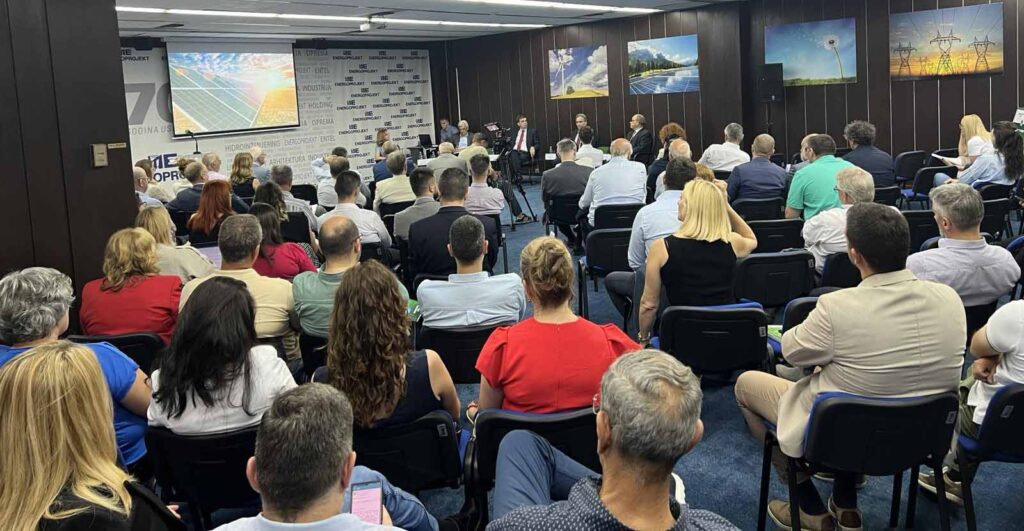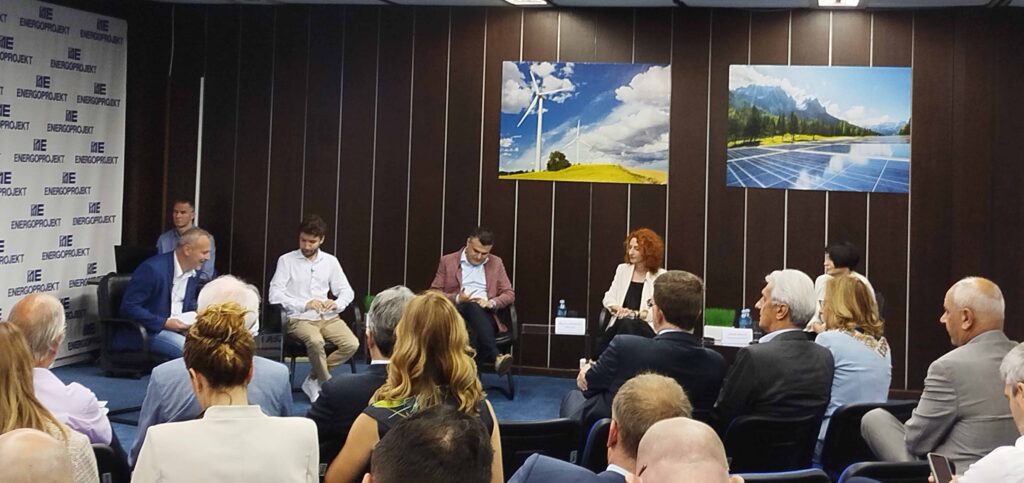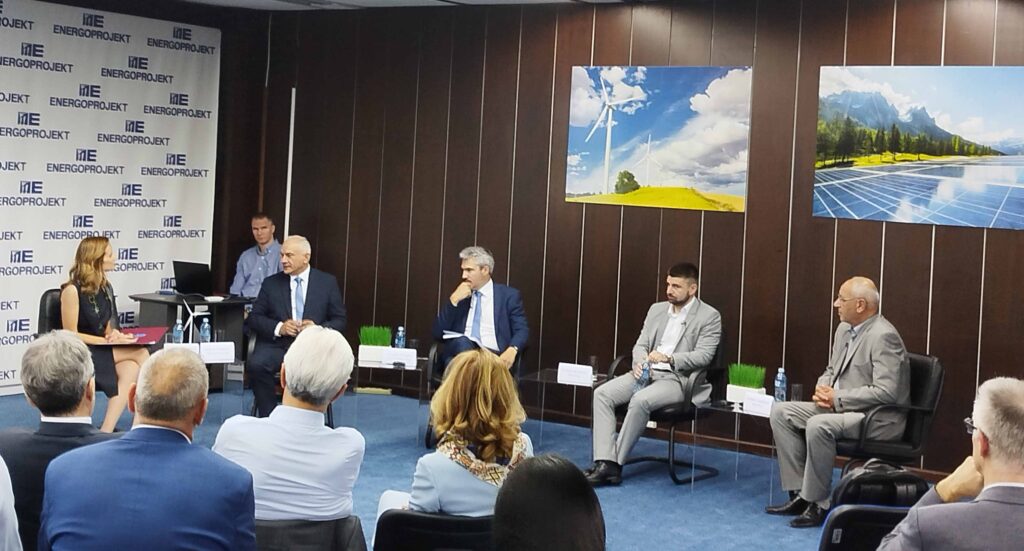As part of the European Sustainable Development Week, which has been organized in Serbia since 2011, the Energy Day Serbia event was held. The organizers of the meeting were Energoprojekt ENTEL and the Society of Thermal Workers of Serbia, with the support of the Serbian Committee of the World Energy Council.
The purpose of the event was to stimulate discussions about the development of the energy sector in the Republic of Serbia, to seek answers to questions about how to ensure the stability and flexibility of the energy system, as well as to show good examples from practice and projects that contribute to the achievement of goals. It was also discussed how to form and develop appropriate personnel who are expected to present the planned activities in the energy sector.
The meeting was officially opened by Mladen Simović, director of Energoprojekt ENTEL and representative of the Delegation of the European Union in the Republic of Serbia, looking at the overall picture of the state of energy in the region and Serbia, as well as the prospects for the future of this sector.
Panel 1. Zero-carbon energy solutions for a competitive Europe
At the first panel, we could hear what challenges Serbia is facing in the area of decarbonisation, as well as what strategic documents will be adopted in the coming period to solve the problems.
The representative of the Delegation of the European Union in the Republic of Serbia revealed the new regulatory frameworks that are needed for Serbia to achieve total decarbonisation in the next 30 years. We also heard examples of countries in the Middle East, that are trying to reach achievable goals through energy sector.

Panel 2. How to ensure the stability and flexibility of the energy system
The next panel was moderated by Goran Vukojević from Go2Power, who is a regular member of RES Serbia.
– Demands for connection to the network is increasing, however, it is necessary to solve regulatory problems – is the conclusion of Vojislav Simić from EMS.
The head of the CWP Global electricity market sector, Marko Janković, concluded that flexibility affects market participants the most, that batteries are only one type of energy storage and that it is necessary to introduce a carbon tax and implement it fully.
Milica Knežević from KfW said that it is necessary to change the regulations to improve the market and innovations, as well as that their bank is currently dealing with connecting the market and total decarbonisation.
Jasna Grujić, head of the electrical office at Energoprojekt ENTEL, the host of the meeting, added that patience is very important in the energy sector.
– The battery can be located anywhere, but often manufacturers store energy nearby – she said.

Panel 3. Energy transition – examples from practice
During this panel, we were able to learn about good examples of energy transition. Acting general director of EPS, Dušan Živković said that Serbia needed to stabilize its energy by investing in hydropower plants. Dušan Stanar from NIS revealed to us the possibility of the company participating in the PPP.
There was also talk about pressure from buyers in the EU, as well as how a multinational company like the Nelt Group is installing solar panels on its roofs.
Panel 4. How to secure the necessary human resources
At the last panel of this year’s gathering, we were able to find out how various institutions, such as colleges, deal with bringing new professionals into the energy sector, as well as how it can be inspiring for young people to work in a dynamic sector.


